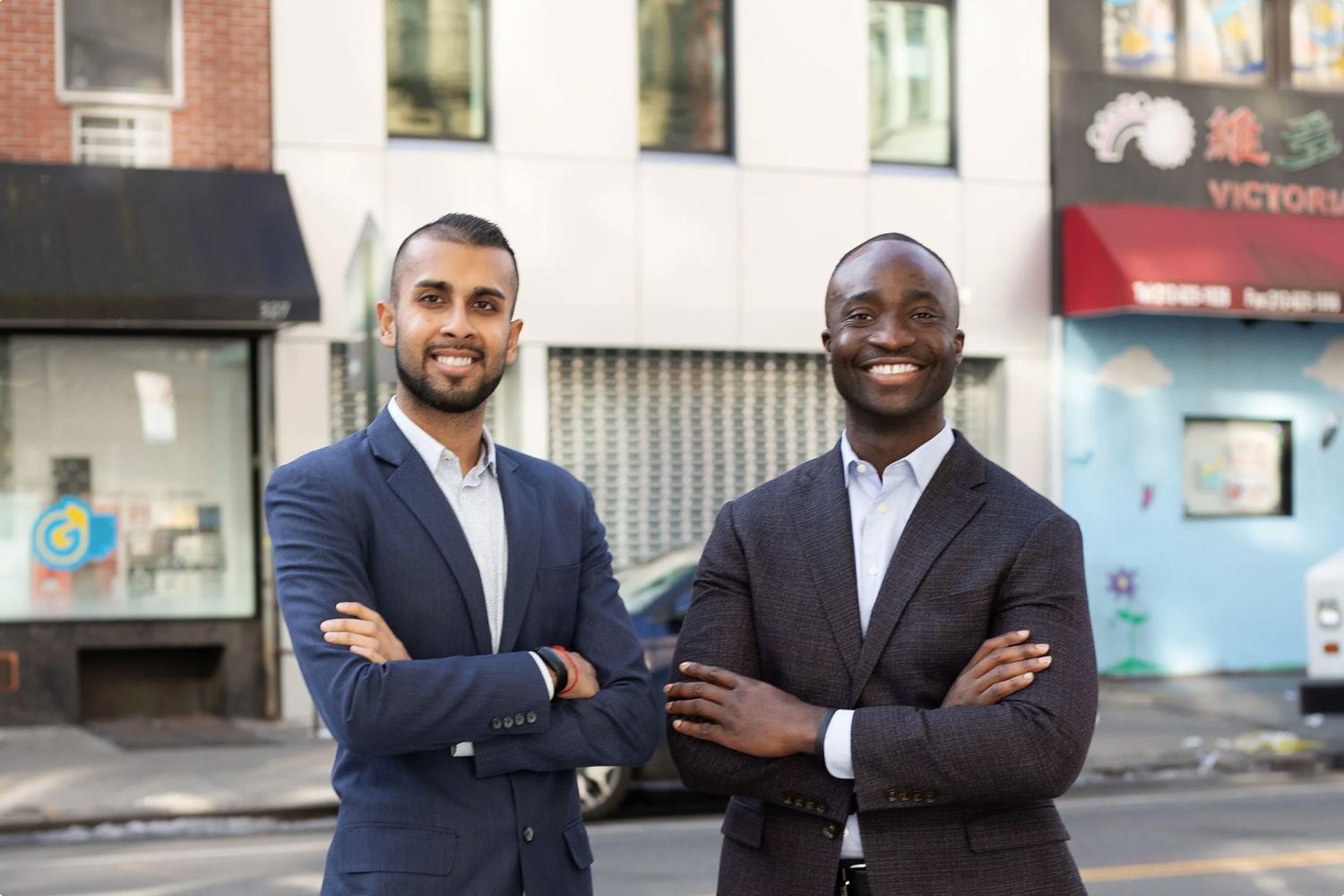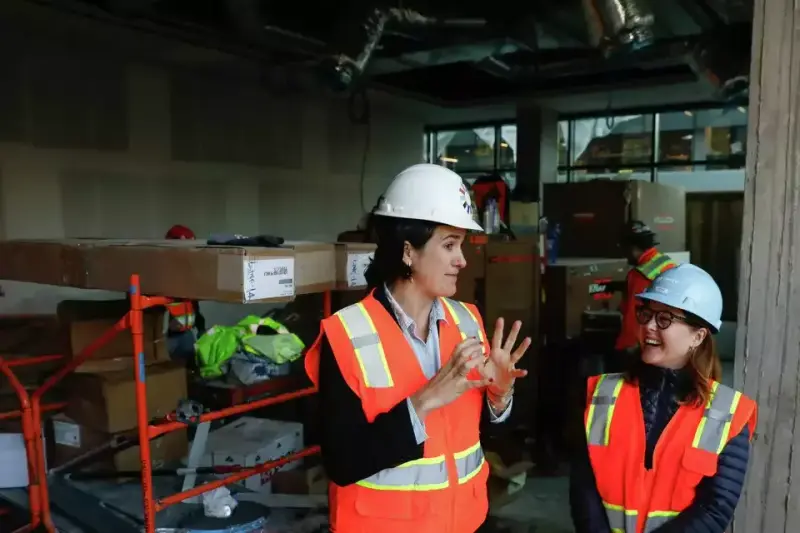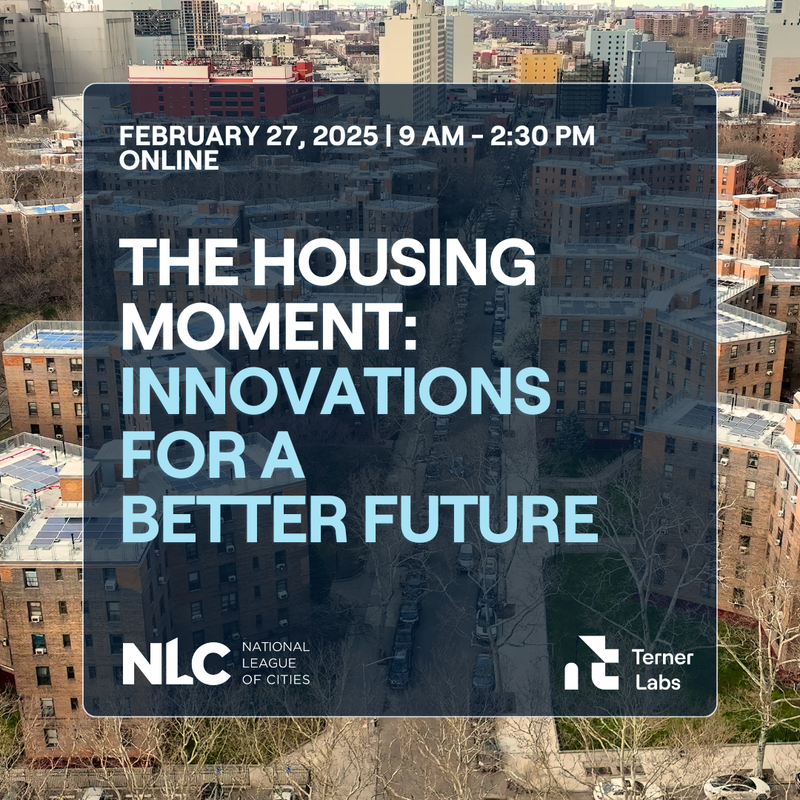Catching up with Esusu

With all of the hardships that 2020 brought, Housing Lab staff were inspired watching how our inaugural cohort used their platforms to address growing housing instability. Esusu, member of Housing Lab’s 2019-20 Cohort, met this moment in stride with the launch of their rent relief fund last April. Co-founders Abbey Wemimo and Samir Goel raised nearly half a million dollars through crowdfunding and nonprofit fundraising to give applicants 12-month, interest free loans to help pay their rent. With over 5,000 applications, 85% of whom were Black, Esusu is addressing the lack of emergency savings that BIPOC families have access to due to exclusion from wealth building mechanisms.
This platform aligns with the venture’s primary work of helping communities of color and immigrants build their financial identity in the US. In 2020, Esusu closed $2.3 million in seed funding from a mix of traditional and impact-focused investors, including Impact America Fund, Zeal Capital Partners, and Next Play Ventures, bringing their total financing up to $4 Million. Read more about their platform.
Housing Lab checked in with Samir and Abbey to learn more about what Esusu has been up to, their rent relief fund, and how they’re navigating COVID-19.
What inspired you to start the rent relief fund?
When the COVID-19 pandemic arrived in NYC, where we are headquartered, virtually overnight the economy slowed down and millions of people were advised to stay at home. Unemployment spiked and millions didn't have emergency savings for crisis scenarios like this. The stay-at-home orders became concerning as we considered the inevitable reality that millions of Americans would struggle to afford to keep a roof over their heads. We started hearing directly from renters on our platform that they were concerned about being able to make their rent payments. We responded immediately - raising over $1 million to establish a rent relief fund. We focused on providing zero-interest loans and relief during this pandemic to help renters avoid eviction and ultimately homelessness.
We started Esusu with the belief that where you come from should not determine where you end up in life. As co-founders, we share difficult, personal experiences with financial marginalization when our families moved to the United States. This inspired us to create this platform to deliver a roadmap toward financial inclusion through rent reporting and credit building. Renters are disproportionately vulnerable and impacted by COVID-19. If we don't create sustainable solutions, this housing crisis will sideline our mission to bridge the racial wealth gap.
Are you considering ways to integrate the rent relief work into your larger platforms long-term?
Absolutely, our rent relief efforts are built into our platform for the long term. This recovery will be very slow, and we need to have structures in place to help families rebound. Eviction bans are just a temporary fix but if we leverage partnership and collaboration, we can create sustainable programs. Beyond the pandemic, financial shocks are a reality for tens of millions of Americans. The current status quo means that a health emergency, job loss, or shift cuts leads to eviction and homelessness or a predatory payday loan. We need a better alternative to help working families stay in their homes. Our rent relief loans help fill that void. We also think about how rent impacts landlords and small businesses and we have partnered with Kiva to offer rent support for mom and pop landlords. We inked more partnerships during this pandemic than ever (Yardi, Realpage, and others), to reach more homes and rebuild in a post-pandemic economy.
Is the Esusu team seeing any trends in how applicants are paying back their loans? With continued high unemployment, do these loans feel repayable?
Esusu has been pleasantly surprised with the rate of repayment which currently sits around 96%. Given these dire times and the limited resources that many of our constituents have, we expected this to hover closer to 80%. What we’ve learned is that rent payment often comes down to a timing difference. Our job is to buy time for a renter to receive unemployment, navigate health care expenses, or find a new job. Once that happens, people are keen to repay and ensure they can pay it forward to others.
With over $120b in outstanding rental payments, the long term fix is a public policy solution. In the interim, we will continue to do our part to stand by renters in these difficult times.
What else has Esusu implemented since the onset of the COVID-19 pandemic to better serve their customers during this unprecedented time (renters and property owners?)
We are leading with mission-aligned partnerships with organizations that prioritize social justice and economic empowerment. For example, we partnered with John Hope Bryant and the Promise Homes Company, one of the largest minority-led, owners of single-family residential rental property in the U.S. This partnership helps renters in their network to establish and build their credit and even have visibility into their credit scores. It's partnerships like this that enable us to reach millions nationwide. These are win-win collaborations that help renters and property owners alike.
How has the COVID-19 pandemic affected your personal and professional growth?
The ongoing COVID-19 pandemic made it evident that the collective wellness and stability of communities across the nation are absolutely critical. Almost a year in, we're seeing the overwhelmingly disproportionate impact left on communities of color and this devastating impact will last for years. It has been personally and professionally challenging to read all of the relief applications and emails that pour into our office from residents facing uncertainty and fearing eviction. They are looking for support and time to get back on their feet again. It's their stories of resilience and love for their families that inspire us to keep going. Our mission at Esusu remains unchanged and our purpose has become an absolute necessity as the pandemic continues to highlight the difficulties experienced by marginalized communities. Our work is more important than ever as we work to address these disparities head-on.
Watch the video below to hear more from Abbey and Samir and why they founded Esusu.



